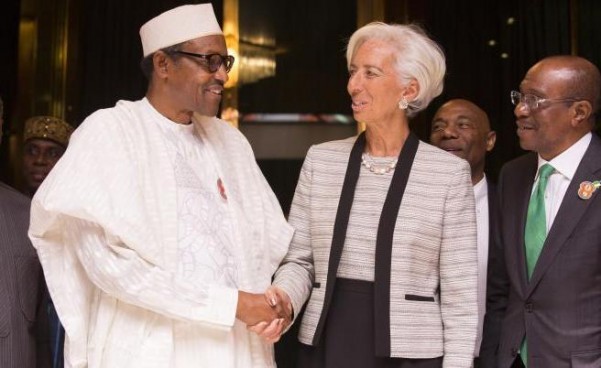We’re available for Nigeria, says IMF boss

The Managing Director of the International Monetary Fund, Christine Lagarde, has said the organisation remains available for Nigeria whenever the country needs financial assistance from it.
The IMF boss noted that the persistent devaluation of the naira might not be a good measure for the Federal Government.
Lagarde stated this in a recent online question and answer session on emerging market economies with media organisation from all over the world, including The PUNCH.
When asked the likelihood that Azerbaijan and Nigeria would need IMF loans, she said that the global financial body would do its best to assist the two countries in the face of huge economic challenges.
Lagarde stated, “The IMF remains available to all its members; so, the moment we are asked to help, we’ll do the best we can to help. Both countries, Azerbaijan and Nigeria, have been hard hit by the oil price decline shock, because their economies depend heavily on oil exports, both in terms of trade, and in terms also of revenue.
“When you lose a lot of that, because the price decline was about 70 per cent, then clearly it puts the economy under shock.”
According to her, Azerbaijan is properly tackling its challenges, while Nigeria has yet to get it right.
She said, “Policies adopted by the two are different. Azerbaijan has certainly taken a good fiscal approach, is reassessing spending, is really trying to restore its position, and it is also using the exchange rate as a buffer.
“Nigeria is not there, and we certainly hope that in terms of identification of fiscal resources, removal of oil subsidies, she can do with an exchange rate policy that is sensible, in the sense that it is not going to waste reserves.
“We have in particular indicated that a persistent pegging of the naira would not be such a good idea. So, they have to adopt their policies, they have to adopt their model, and if they need IMF’s help, we’ll be ready to help. No question about that, and no stigma associated with it. They are clearly a victim of an external shock, and they have to face a response, which is a national response to that situation.”









0 Comments